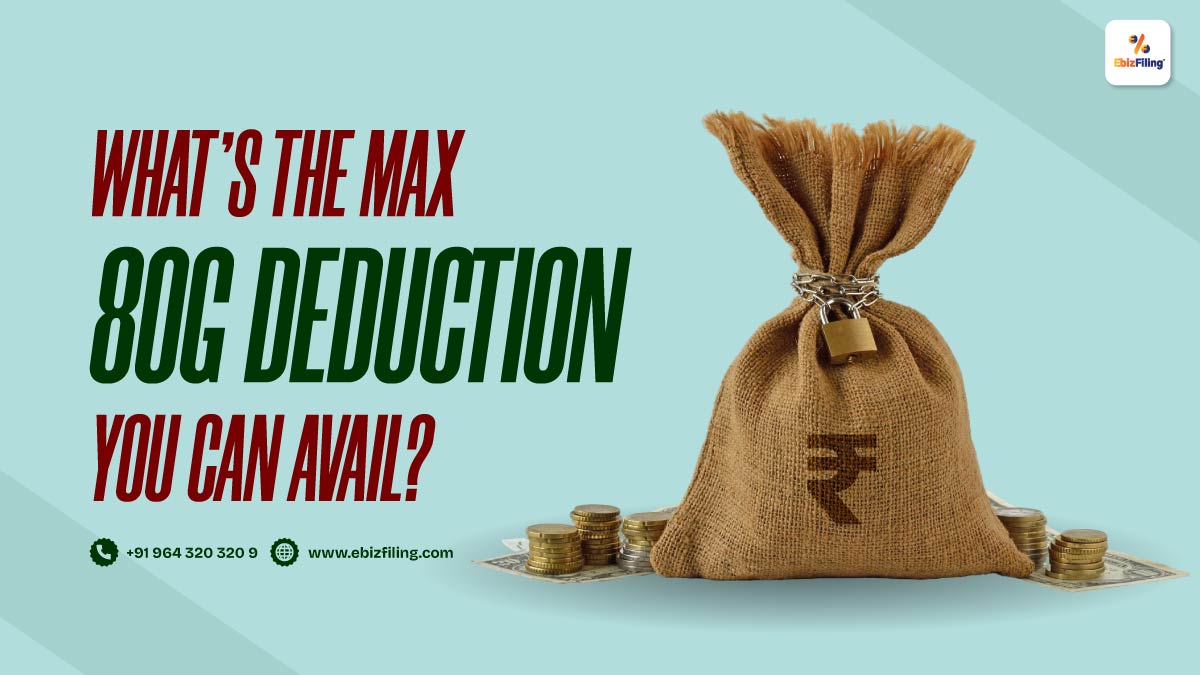Types of Donations and Deduction Limits
When you donate money, the tax benefit you get under Section 80G depends on the type of organization you give to and some rules about limits. Here are the main types:
1. 100% Deduction Without Any Limit
For some special funds like the Prime Minister’s National Relief Fund or the PM CARES Fund, you can get a full tax deduction on the entire amount you donate. There is no upper limit on how much you can claim.
2. 50% Deduction Without Any Limit
Donations to certain funds, like the Prime Minister’s Drought Relief Fund, qualify for half the amount donated as a deduction. Again, there is no limit on how much you can claim here.
3. 100% Deduction But Limited to 10% of Your Income
If you donate to some government approved organizations (for example, for family planning programs), you can claim the full donation amount as a deduction. But this deduction is limited to 10% of your adjusted total income.
4. 50% Deduction But Limited to 10% of Your Income
Most other donations to registered charities or NGOs fall here. You can claim 50% of the donated amount as a deduction, but only up to 10% of your adjusted total income.
This means the tax benefit depends on who you donate to and your income. Always check the organization’s 80G certificate to know the exact deduction you can claim.
How to Claim 80G Deduction?
- Donate to a Registered Organization: Make sure your donation is to a charity or fund that has a valid 80G certificate from the Income Tax Department.
- Get a Donation Receipt: Ask for a receipt from the organization. It should include their name, address, PAN, 80G registration number, and the amount you donated.
- Use Proper Payment Method: Pay by cheque, bank transfer, or digital methods for amounts above ₹2,000. Cash donations over ₹2,000 are not eligible.
- Mention Donation Details in Your Tax Return: When filing your Income Tax Return (ITR), enter the donation amount under the Section 80G deduction section.
- Keep Proof Safe: Retain the donation receipt and proof of payment. You don’t have to submit these with your return, but keep them handy in case the tax department asks for verification.
Conclusion
Understanding the 80G deduction limit is essential for individuals looking to maximize their tax benefits while supporting charitable causes. By donating to eligible organizations and following the correct procedures, taxpayers can claim deductions up to the specified limits under Section 80G. Always ensure you keep proper receipts and check the eligibility of the institution to make the most of your tax savings.
Suggested Read :
Donation Tax Deductions Under Section 80G
Difference between 12A and 80G
How to Download 12A and 80G Certificate?
NGO Donation Tax Exemption under Section 80G











January 31, 2026 By Dhruvi D
Determining State Residency for Tax Purposes in the US Introduction Determining state residency for tax purposes is one of the most misunderstood areas of US taxation. Many taxpayers assume that where they live physically decides everything. In reality, states […]
January 30, 2026 By Dhruvi D
Key Federal Tax Credits and Deductions for US Taxpayers Begin With, Many US taxpayers pay more tax than required simply because they are not aware of available federal tax credits and deductions. These benefits are designed to reduce tax burden, […]
December 19, 2025 By Steffy A
Income Tax Department Cracks Down on Fake Party Fraud Introduction The has intensified scrutiny on income tax returns that show suspicious or unusually high refund claims. Recent investigations revealed the misuse of donations made to fake political parties and charitable […]